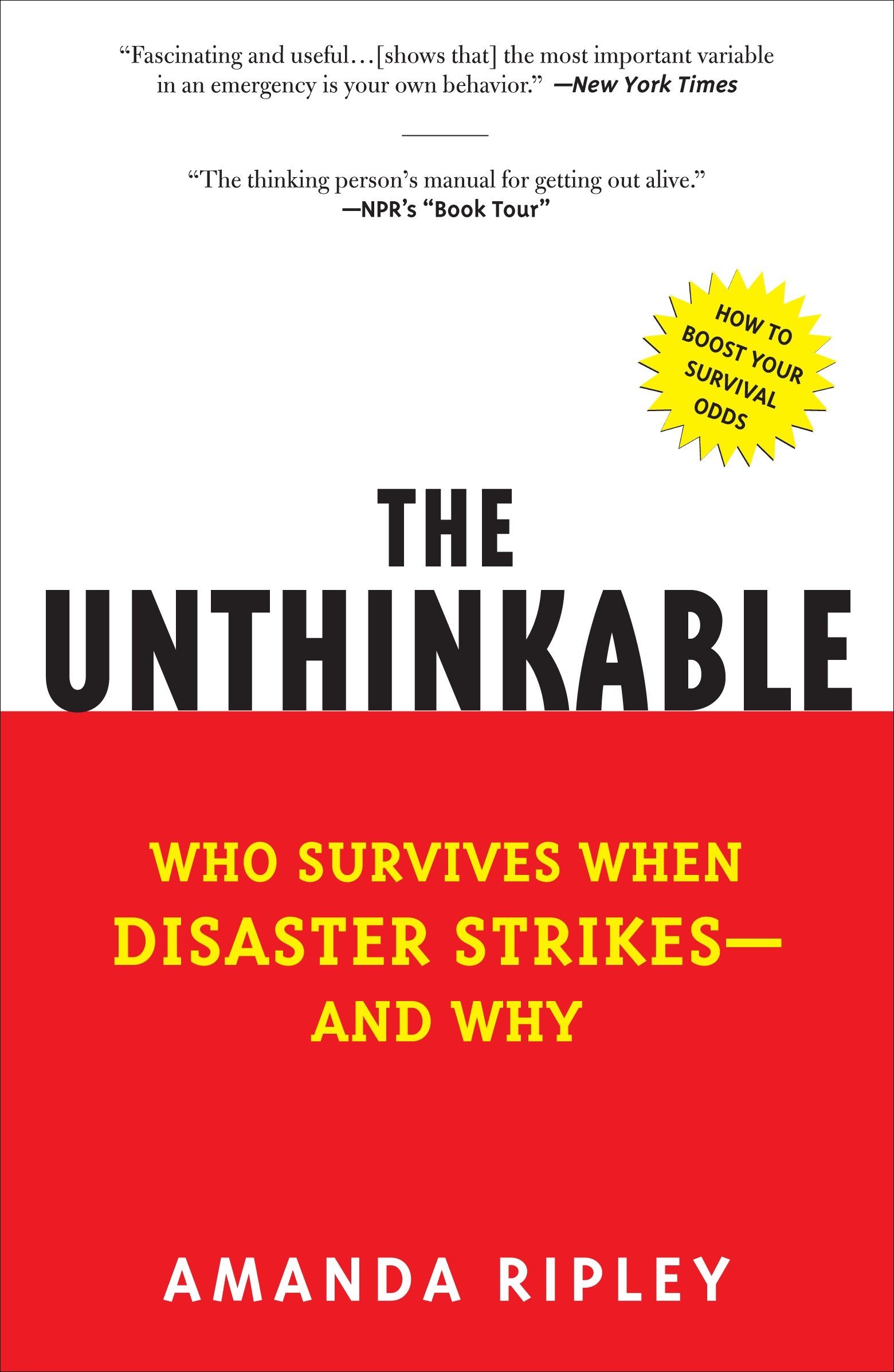
Overall this book is pretty mediocre. It's fairly short, direct and gets right to the heart of the problem of disaster scenarios. It contains an overview of several different disasters though the eyes of who saw them, including a Latin American hostage situation, 9/11, and a hurricane. Overall the advice seems to be that relatively simple instructions and training would a long way to preparing us for disasters but doing so is difficult due to the structure of our society. False alarms also cause people to not react in the real disaster scenario.
It was pretty interesting to see the section on disassociation. The phenomenon is fairly frequent in literature/popular media. I was unaware just how common it was for people who do jobs with high levels of risk/disaster scenario occurring. It's also curious that people with this role train themselves to go into this state. Is this something that we should start institutionalizing and training in professions that benefit it? One note that makes me doubt this is the cop who speaks highly about this phenomenon is also a paid trainer for it so I'd like to see more evidence.
One thing that is interesting in this book and others is how often disaster/operational experts refer to the airplane disasters as an example of positive behavior. Is this because accidents during flights cause usage of airlines to decline therefore it's in the companies best interest to make them very safe? The other argument is that the NTSB is very effective at investigating and making changes to the industry. It seems remarkable that this one industry is held in high regards and there still seems to be low level ideas to steal for other industries. Consider the Checklist Manifesto which includes a long discussion on checklists in airline safety.
So if we have the answers and understand how to give better training, why aren't we pushing the government to do something about it? On a personal level, this is probably going to change my behavior in some small ways but I don't see any major revelations.



